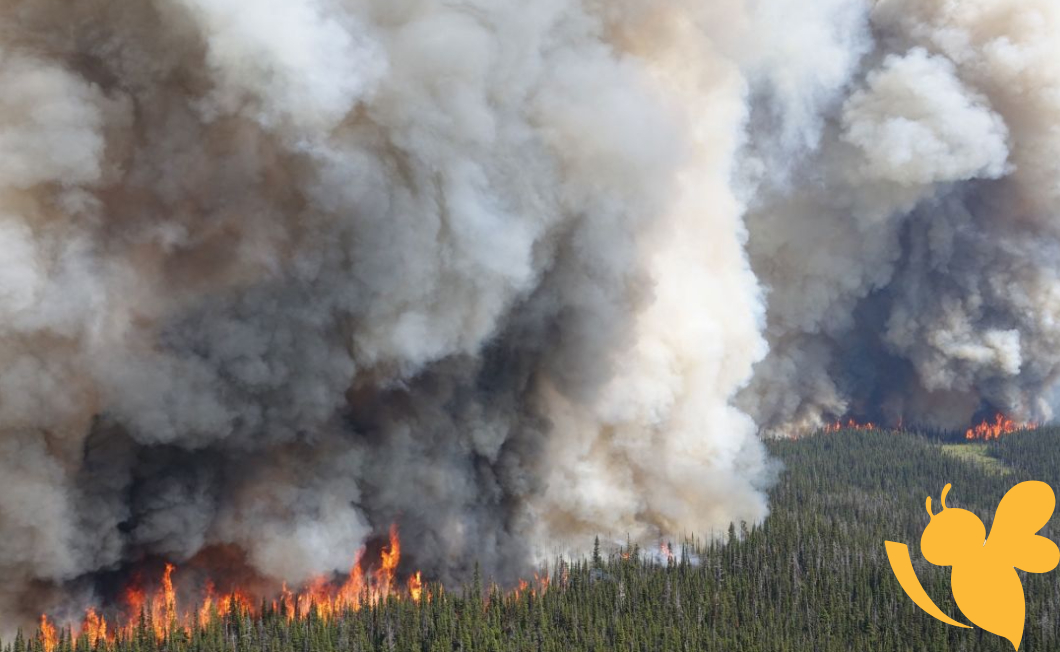The Midwest is currently grappling with deteriorating air quality due to smoke from wildfires raging in Canada. As of late May 2025, cities such as Detroit and Chicago are experiencing moderate air quality concerns, with the Air Quality Index (AQI) reaching levels that equate to the health impact of smoking a cigarette daily . This situation has arisen amidst a state of emergency declared in Manitoba, where thousands have been evacuated due to the severity of the fires .
Wildfire smoke from Manitoba, Canada, is drifting south into the United States, impacting air quality across several northern states and affecting millions of Americans. The fires have triggered a province-wide state of emergency in Manitoba, where a record 17,000 people have been evacuated, according to Premier Wab Kinew. The state of emergency, declared Wednesday, will last 30 days and can be extended.The smoke is expected to linger for several days, prompting air quality alerts and health advisories from Montana to Minnesota. Residents are urged to take precautions, especially those with respiratory conditions, by limiting outdoor activities and keeping windows closed.
The Canadian Interagency Forest Fire Centre reports that Manitoba is experiencing an unusually severe fire season, with over 1,000 wildfires recorded so far this year, far exceeding the average. The combination of dry conditions and high winds has fueled the rapid spread of the blazes, overwhelming local resources and necessitating federal assistance.
A pattern change later Monday into Tuesday will turn winds out of the south in the central U.S. ahead of a cold front coming from the West. That means relief from smoky skies and air quality issues should at least temporarily arrive as the smoke is pushed northward into Canada and away from the U.S.
According to the National Weather Service, the smoke will drift southeastward with an area of high pressure beginning Thursday morning and could linger near Lake Superior into Friday morning.
On Friday, another round of heavy smoke from wildfires will likely descend into Minnesota behind a cold front.
The movement of smoke southward is largely attributed to upper-level winds originating from Saskatchewan and Manitoba. Areas such as Wisconsin and northern Minnesota are particularly affected, with significant concentrations of near-surface smoke posing heightened risks for vulnerable populations including individuals with chronic health conditions, children, and the elderly . The Environmental Protection Agency's AirNow platform serves as a crucial tool for monitoring these air quality changes.
In conclusion, the Canadian wildfires represent not only an environmental crisis but also a public health challenge for millions residing in the Midwest. As air quality continues to fluctuate due to ongoing wildfire activity, it becomes imperative for residents to stay informed about potential health impacts and take necessary precautions. The interplay between climate events such as wildfires and regional air quality underscores the urgent need for comprehensive environmental policies aimed at mitigating such disasters in the future.
Read more
PSG face Inter predictions , live streaming and lineups Visa Overhaul Signals Power Play: U.S. Puts Itself Ahead of ChinaSara H
Also on site :
- Measles Scare Takes Off: Outbreak Linked to International Flight at Denver Airport
- Measles outbreak linked to international flight at Denver airport raises alarm
- Bridge collapses in two Russian regions near Ukraine leave seven dead.

